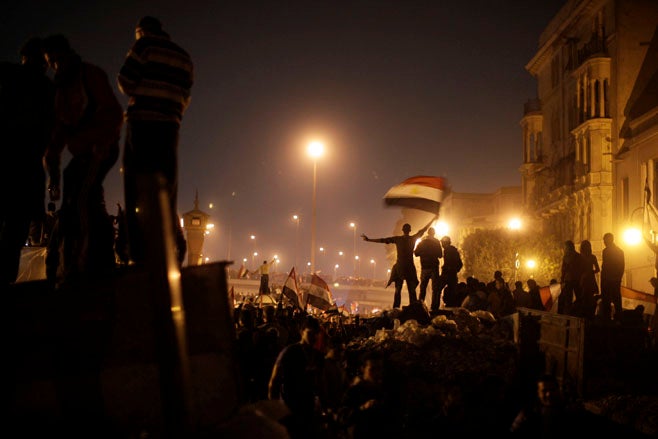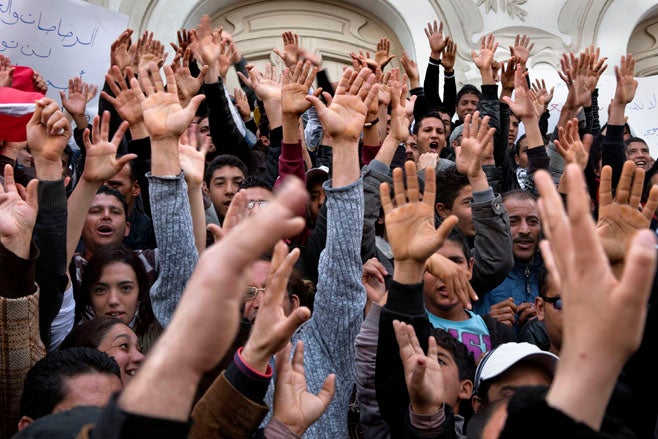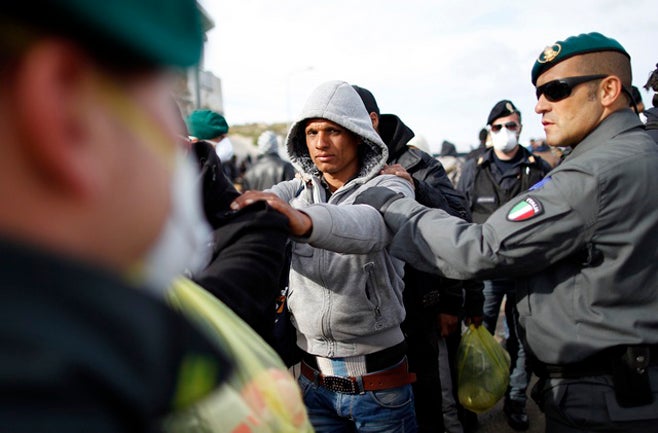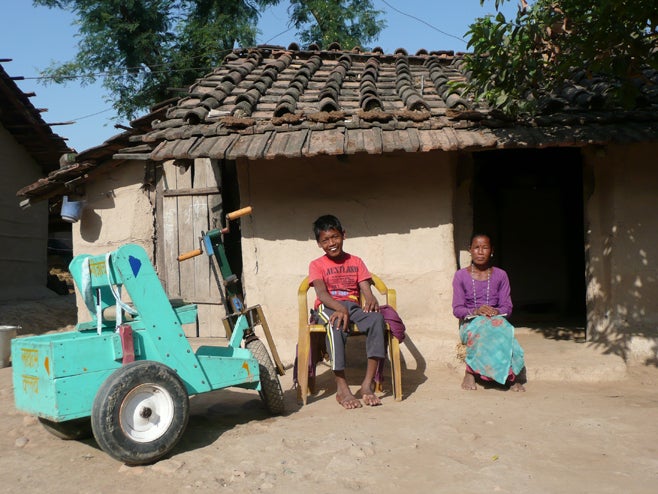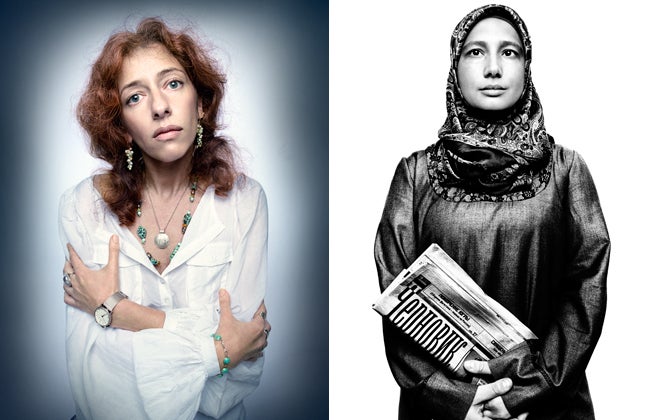Singapore’s People’s Action Party (PAP), in power since 1959, garnered its lowest-ever winning margin in May 2011 elections, losing six parliamentary seats to the opposition Workers’ Party. The government’s relaxation of prohibitions on campaign rallies and online electioneering were improvements, but the government continued to effectively control television and print media.
During the May 2011 review of its human rights record at the United Nations Human Rights Council (HRC), Singapore rejected many of the member states’ suggestions for human rights improvements, including ratification of core UN conventions.
Freedoms of Expression, Assembly, and Association
Singapore's constitution guarantees rights to freedom of expression, peaceful assembly, and association. However, it also permits broadly interpreted restrictions not only for security, public order, and morality, but also for parliamentary privilege and racial and religious harmony. These restrictions facilitate censorship of broadcast and electronic media, films, video, music, sound recordings, and computer games. The Newspaper and Printing Presses Act requires yearly renewal of registration and allows government officials to limit circulation of foreign newspapers they deem “engage in the domestic politics of Singapore.” Two corporations dominate the media in Singapore. MediaCorp is wholly owned by a government investment company; Singapore Press Holdings Limited (SPH) is a private company, but the government must approve and can remove shareholders, who have the authority to hire and fire all directors and staff.
Although Singapore loosened some limitations on free speech, association, and assembly in mid-March 2011, it maintained or tightened other restrictions. Blogs, podcasts, and social networking sites were permitted to be used for internet election advertising as long as they did not contain recorded messages that were “dramatized” or “out of context.” Candidates were also required to announce within 12 hours of the start of campaigning all new media content they planned to use.
Government officials continue to maintain that religious and ethnic differences have “the potential to cause friction and divide Singaporeans” and therefore necessitate restrictions on free speech. Outdoor gatherings of five or more persons require police permits.
On December 10, 2010, police refused to grant Singaporeans for Democracy (SFD) a permit to hold an International Human Rights Day parade. In February 2011 Chee Soon Juan, secretary general of the Singapore Democratic Party, paid a heavy fine for “speaking without a permit” during the 2006 general election campaign to avoid a prison term of 20 weeks.
In January 2011 the government ordered The Online Citizen (TOC), a popular blog site, to register as a political association. According to the Prime Minister’s Office, “TOC has the potential to influence the opinions of their readership and shape political outcomes in Singapore. It has been gazetted to ensure that it is not funded by foreign elements or sources.”
A police investigation is underway to determine if a SFD invitation-only event in September 2011 should be considered a public event held without a permit. The Public Order Act 2009 mandates that permits for indoor assemblies are needed if, as was the case here, all speakers are not citizens of Singapore. Police raised concerns that invitations issued through a Facebook events page and by email compromised the forum’s private status.
Police were also investigating a public forum of former Internal Security Act detainees organized by the opposition Singapore Democracy Party (SDP) in September. According to the Ministry of Foreign Affairs, the SDP “arranged for a fugitive from justice, Francis Seow [speaking online from Boston], and a foreign national, Ms. Tang Fong Harr [speaking from Hong Kong] to participate in a discussion on Singapore’s domestic politics.”
All associations of 10 or more members must seek approval, which can be denied by the Registrar of Societies if deemed “prejudicial to public peace, welfare or good order.”
Singapore also resorts to charges of contempt of court, criminal and civil defamation, and sedition to rein in its critics. On June 1, 2011, British author Alan Shadrake began serving a six-week prison term for contempt of court for “scandalizing the judiciary” by alleging in his book, Once a Jolly Hangman: Singapore Justice in the Dock, that Singapore’s justice system permits interference by the People’s Action Party with court decisions relating to capital punishment. At his trial, the prosecution cited 11 specific statements, including the book title, to argue that Shadrake’s allegations and insinuations “muzzle confidence in the courts’ impartiality, integrity and independence.” Shadrake was immediately deported upon release.
Criminal Justice System
Singapore's Internal Security Act (ISA) and Criminal Law (Temporary Provisions) Act permit arrest and virtually unlimited detention of suspects without charge or judicial review. As the Ministry of Home Affairs explained in September 2011, threats such as subversion, espionage, and terrorism keep ISA “relevant.” At least three suspected terrorists were detained in 2011.
The Misuse of Drugs Act permits confinement of suspected drug users in "rehabilitation" centers for up to three years without trial. Second-time offenders face prison terms and may be caned.
Singapore continued to implement mandatory death sentences for some 20 drug-related offenses in the face of repeated criticism by UN human rights bodies and experts.
Judicial caning, an inherently cruel punishment, is a mandatory additional punishment for medically fit males between 16 and 50-years-old who have been sentenced to prison for a range of crimes including drug trafficking, rape, and immigration offenses. A sentencing official may also, at his discretion, order caning in cases involving some 30 other violent and non-violent crimes. The maximum number of strokes at any one time is 24. The United States State Department reported that in 2010, “3,170 convicted persons were sentenced to judicial caning, and 98.7 percent of caning sentences were carried out.” During its HRC Universal Periodic Review (UPR), Singapore rejected all recommendations designed to eliminate caning.
Sexual Orientation and Gender Identity
Penal Code section 377A criminalizes sexual acts between consenting adult men. Sexual acts between women are not criminalized.
The Board of Film Censors gave its strictest classification, R21, to “The Kids are All Right,” a film depicting a lesbian-headed household. The classification prevents advertising and home video release of the film, and restricts viewers to persons over 21-years-old. Only one print of the film was authorized to be released, significantly limiting public showings.
Migrant Domestic Workers and Trafficking
Singapore continues to improve rights protections and working conditions for some 196,000 foreign domestic workers through vigorous prosecution of employers and recruiters who physically abuse workers, fail to pay wages, or subject workers to dangerous conditions. Effective April 1 it amended the Employment Agencies Act to cap recruitment fees at two months salary for workers on two-year contracts but exempted substantial training and travel costs from the cap.
The government also refuses to include domestic workers under the Employment Act, and uses a sponsorship system that ties a domestic worker to a specific employer who, in turn, retains the right to cancel the migrant worker's contract, making her subject to immediate deportation. Unscrupulous employers often use the threat of contract cancellation to intimidate workers into accepting unlawful work conditions, restricting their movements, and preventing them from filing complaints.
A government-mandated standard contract for migrant workers does not address issues such as long work hours, poor living conditions, and enforced confinement. Instead of guaranteeing one day off per month and a set number of rest hours per day, it makes such breaks a matter of negotiation between employer and employee. It also fails to provide protections against denial of annual or medical leave, requires immediate deportation of pregnant workers, and stipulates that no foreign domestic workers may marry a Singaporean.
Singapore is one of only nine states that did not vote for passage of International Labour Organization (ILO) Convention No. 189 on Decent Work for Domestic Workers.
At this writing Singapore had not ratified the Protocol to Prevent, Suppress and Punish Trafficking in Persons.
Human Rights Defenders
Human rights defenders in Singapore risk being fined, jailed, bankrupted, and forbidden from traveling outside the country without government approval. At its UPR review, Singapore rejected the suggestion that it accept a visit by the UN special rapporteur on the situation of human rights defenders.
Key International Actors
Maritime security, counterterrorism, trade, and investment dominated relations between Singapore and the US, one of its most important allies, with both parties eager to expand already robust military ties in the region, preserve open shipping lanes in the South China Sea, and impede terrorist financing. Singapore and the US are in talks about establishing a permanent Singapore base for an advanced US littoral combat ship.
The US continued to be restrained in its criticism of Singapore’s human rights record. It was silent, for example, during the May 2011 review of Singapore’s record as part of the UPR process.
Singapore continued to play a leading role in the Association of Southeast Asian Nations (ASEAN) yet did little to ensure that the human rights principles contained in the ASEAN Charter were applied to member countries like Burma, Cambodia, Laos, and Vietnam, where human rights abuses are systemic.
